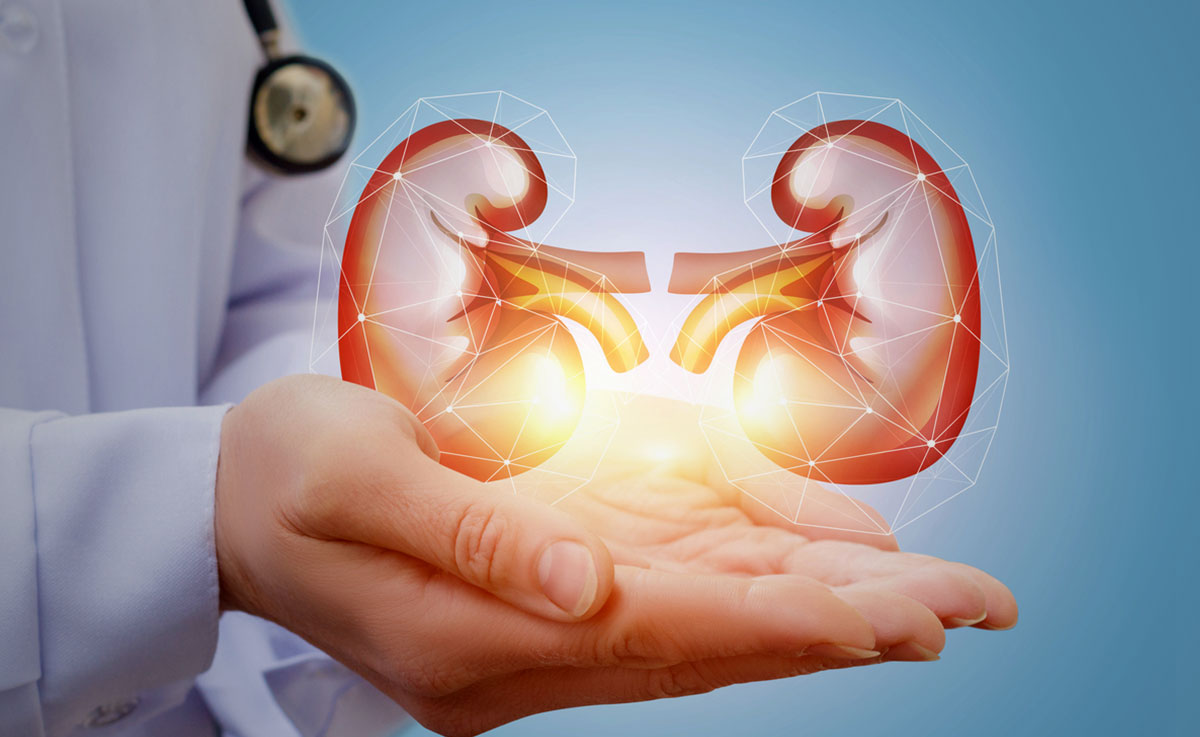
As the scorching summer literally bakes us at temperatures well over 45 degrees and above, especially in the Middle East, an obvious but key question to ask is are we drinking close to at least 8 glasses of water every day to stay hydrated?
Everybody knows the grueling effect the merciless summer heat already has on our skin if we step out for just a few minutes without adequate sun protection to shield us from the sun’s UV rays. If ignored, they create all types of skin disorders.
But coming back to the question of dehydration: can it really cause kidney issues?
Why you need to hydrate:
As we might all be aware of already, each of us are like ‘oceanic bodies’ by ourselves, moving around with about 70% of water, which scientifically speaking, takes up our entire body weight!
What it therefore means is that every part of our body needs water to function properly. Dehydration occurs when your body starts losing excessive amounts of water, owing to diarrhoea, vomiting, sweating, or even poorly controlled diabetes.
Water washes away waste from your blood in the form of urine and keeps your blood vessels open so that blood with important nutrients can travel freely to your kidneys. However, when you become dehydrated, the ‘waste movement’ slows down, making it difficult to exit your body.
In fact, mild dehydration symptoms include weakness and fatigue, and affect your body’s natural functions and defenses, while excessive dehydration can cause damage to your kidneys. The obvious solution is to therefore ensure you drink enough water while you work out during intense exercises or extreme sports, especially in warm and humid weather. Research reveals that frequent dehydration, even if it’s mild, could cause permanent kidney damage.
The causes of kidney disease due to dehydration:
- Build-up of wastes and acids in the body
- Clogging of the kidneys with muscle proteins (myoglobin)
- The formation of kidney stones caused by hardening of wastes into hard crystals that stick together. They form less easily when you have enough water to prevent stone-forming crystals from sticking together.
Each of the above examples grow to be extremely painful, if ignored.
How to tell if you’ve got dehydration:
You can always tell how well your hydration levels are just by looking at the colour of your urine. Deep and dark yellow coloured urine indicates that you need to drink more water.
If it repeatedly reveals itself as too dark, then you need to exercise caution and immediately speak with any of our expert urologists at HealthHub Clinics, to see if a certain type of medication is affecting the color of your urine.
There are no fixed rules on the amount of water you drink, as we all have different needs that vary depending on age, climate, exercise intensity, as well as states of pregnancy, breastfeeding, and illness. Remember to always check with your doctor first about your dehydration levels and water intake.
Dehydration symptoms include:
Signs of severe dehydration include:
- Not peeing or having very dark yellow pee
- Extremely dry skin
- Dizziness and nausea
- Rapid heartbeats
- Rapid breathing
- Swollen and sunken eyes
- Sleepiness, lack of energy, disorientation or irritability
- Fainting
Ways to Keep Your Kidneys Healthy
Never take more medicines than required!
Nonsteroidal anti-inflammatory drugs, like ibuprofen can damage your kidneys if you take an overdose of them. Using proton pump inhibitors (PPIs) for an ulcer or GERD for a long time can raise your chances of chronic kidney disease. Speak with our team of internal medicine specialists at HealthHub Clinics to check the right dosage and when you need to take them.
Watch out for those antibiotics!
Your kidneys can be severely damaged by having an overdose of bacteria-fighting drugs like penicillin, sulfonamides, and cephalosporins. It gets riskier if your kidneys don’t work as well as they should.
Watch that diet!
Your kidneys process everything you eat or drink, which includes saturated fat, salty foods, and sugar-rich food. A bad diet can increase your level of high blood pressure, obesity, diabetes, and other conditions that can take a toll on your kidneys, while a healthy diet has lots of vegetables, fruits, and whole grains, and few processed foods.
Beware …the assault of the Salt!
Salt has been proven to raise the amount of protein in your urine, which in turn can harm your kidneys or make it worse if you already have it. It can also raise your blood pressure, which is a typical cause of kidney disease, and kidney stones.
Remember to drink enough water!
Water helps obtain and provide key nutrients to your kidneys and move waste to your bladder in the form of urine. If you don’t drink enough and we’re talking at least 8 glasses of water every day, the tiny filters inside your kidneys can get clogged up, forming kidney stones and infections.
Even a mild case of dehydration can damage your kidneys if it happens too often. Water is the best medicine in this case as it can help dissolve the antibiotics used for urinary tract infections, making the treatment more effective, apart from helping you make more urine to flush out germs.
Make fitness part of your everyday!
While a healthy and balanced diet is always beneficial to your good health, it needs to be supported by a regular exercise schedule. This perfect combination can help prevent conditions from diabetes to heart disease that can lead to kidney damage. The ideal recommendation is maintaining a 30-minute brisk walk and exercise every morning for at least five days a week and then you can increase the time frame to touch an hour every day. A word of caution however: make sure you exercise in measured amounts as too much exercise can cause long-term damage to your kidneys.
Get yourself Screened!
Screening yourself for kidney issues at an early stage is always important. That’s more likely if you or a close friend or someone in the family suffers from heart disease, high blood pressure, diabetes, or a family history of kidney failure. In these cases, your doctor might suggest specific kidney tests as part of your regular checkup. The earlier you go in for a check-up, the faster you can address the issue.
Beware of alcoholic beverages!
Binge drinking alcohol (downing over four drinks in less than 2 hours) can cause sudden, serious damage to your kidneys and possibly lead to long-term problems. Alcohol often can dehydrate you, which can prevent your kidneys from functioning properly, leading to weight gain, liver damage, high blood pressure, and other health disorders that put more stress on them.
Stub out that smoking habit!
Smoking is deadly in any form whether that’s cigarettes, vaping or sheesha. It can raise your risk of kidney cancer and damage your blood vessels, by slowing blood flow to your kidneys. What’s worse, smoking can also affect certain drugs that are used to treat high blood pressure. This is serious because uncontrolled high blood pressure and hypertension is a leading cause of kidney disease.
Managing Chronic health problems
Diabetes and high blood pressure are the two most common conditions that can affect the health of your kidneys and cause chronic kidney disease symptoms. A balanced diet and regular exercise can help keep both of these under control. If you suffer from diabetes, it’s also important to keep a close eye on your blood sugar and take the required insulin dosage when you need it. For high blood pressure, remember to monitor your numbers regularly and take all medicines exactly as your doctor prescribes them.
You can read more about blood sugar issues in our article on whether coffee affects blood sugar and why drinking water is so important.
To know more about our other treatments or to book an appointment, call HealthHub Clinics today to speak with our expert team of internal medicine specialists on 8002344. Don’t miss out on our exclusive wellness packages too!








